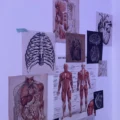Physiology is a great course to study in University and every student should know about it.
is it your dream to be a physiologist?
Do you want to apply for admission in physiology?
Did you just get admission into Physiology and you want to know all about it?
This blog post is a basic introduction to physiology.
What is Physiology?
Physiology is the scientific study of how living organisms, from single-celled microbes to complex animals like humans, function at the cellular, tissue, organ, and whole-body level.
It essentially delves into the mechanisms that underlie the processes that keep us alive and thriving.
Here’s a deeper look at this fascinating field:
What Physiologists Do:
Physiologists ask questions like:
- How do muscles contract, allowing us to move?
- How does the respiratory system extract oxygen from the air and eliminate carbon dioxide?
- How does the nervous system transmit signals throughout the body?
- How do hormones regulate various bodily functions?
- How does the body maintain a stable internal environment (homeostasis)?
To answer these questions, physiologists employ a variety of research techniques, including:
- Dissection: Examining the structure of organs and tissues to understand their function.
- Microscopy: Studying cells and their components in detail.
- Biochemistry: Analyzing the chemical reactions that occur within cells and tissues.
- Electrophysiology: Measuring electrical activity in muscles and nerves.
- Genetic analysis: Exploring the role of genes in physiological processes.
Importance of Physiology:
Understanding physiology is crucial for several reasons:
- Medical diagnosis and treatment: Knowledge of how the body functions helps doctors diagnose diseases and develop effective treatment plans.
- Drug development: Physiological research informs the development of new drugs and therapies.
- Understanding diseases: Studying how normal physiology is disrupted in disease states paves the way for treatments and cures.
- Improving athletic performance: Physiology helps athletes understand how their bodies work and optimize their training programs.
- Maintaining overall health: By understanding how our bodies function, we can make informed choices about diet, exercise, and lifestyle to promote overall well-being.
Sub-fields of Physiology
Physiology is a broad field encompassing various sub-fields that focus on specific aspects of bodily function. Here are a few examples:
- Cellular Physiology: Examines the functions of individual cells.
- Neurophysiology: Studies the nervous system and its role in controlling bodily functions.
- Endocrinology: Focuses on the hormones produced by glands and their effects on the body.
- Cardiovascular Physiology: Explores the heart, blood vessels, and blood circulation.
- Respiratory Physiology: Studies the respiratory system and its role in gas exchange.
- Renal Physiology: Examines the function of the kidneys and their role in maintaining fluid balance and waste elimination.
The Future of Physiology:
Physiology is a rapidly evolving field with constant advancements. Emerging areas of research include:
- Genomics: Exploring how genes influence physiological processes.
- Systems biology: Studying how different systems within the body interact with each other.
- Personalized medicine: Tailoring medical treatments based on an individual’s unique physiology.
Career Prospects in Physiology
A degree in physiology opens doors to a diverse and rewarding range of career paths! Here’s a breakdown of some exciting prospects to consider:
1. Research and Academia:
-
Physiologist:
Conduct research on various physiological processes in living organisms. You could specialize in areas like cellular physiology, exercise physiology, or neurophysiology. Research opportunities exist in universities, government agencies, and private research institutions.
-
Professor:
Teach future generations of physiologists at colleges and universities. You’ll combine research with classroom instruction, inspiring students and shaping the future of the field.
2. Healthcare Professions:
-
Physician/Doctor:
Pursue an MD degree after your physiology studies. A strong foundation in physiology is crucial for understanding human health and disease, making it an excellent base for a medical career.
-
Physician Assistant:
Work alongside physicians, providing medical care and assisting with diagnoses and treatments. Physiology knowledge empowers you to better understand patients’ conditions and contribute effectively to their care.
-
Nurse:
Physiology equips you with a deep understanding of the body’s systems, which translates to more informed and efficient nursing care.
3. Non-Clinical Fields:
-
Pharmaceutical Researcher:
Develop and test new drugs by understanding how they interact with the body’s systems. Your knowledge of physiology is invaluable in this drug development process.
-
Sports Scientist:
Apply physiological principles to enhance athletic performance. You could work with athletes to optimize training programs based on their bodies’ capabilities.
-
Ergonomics:
Design workplaces and equipment that are safe and comfortable for humans. Your understanding of the body’s mechanics and limitations is crucial in this field.
-
Science Writer/Communicator:
Bridge the gap between science and the public by translating complex physiological concepts into clear and engaging content.
Additional Considerations:
- Advanced Degrees: Depending on your career goals, pursuing a Master’s degree or PhD in physiology can significantly enhance your expertise and open doors to advanced positions.
- Skills Development: Sharpen your research, analytical, and communication skills alongside your physiological knowledge. These skills are valuable across various career paths.
- Networking: Build connections with professionals in your field of interest. Attend conferences, volunteer with research labs, and connect with mentors to explore different career options.
Physiology provides a strong foundation for a fulfilling career in healthcare, research, or related fields. By identifying your interests and honing your skills, you can leverage your physiological knowledge to make a significant impact in various sectors.
By continuing to explore the intricate workings of the human body, physiology will play a vital role in improving human health and well-being for generations to come.
Follow Exam Scholars for more information






